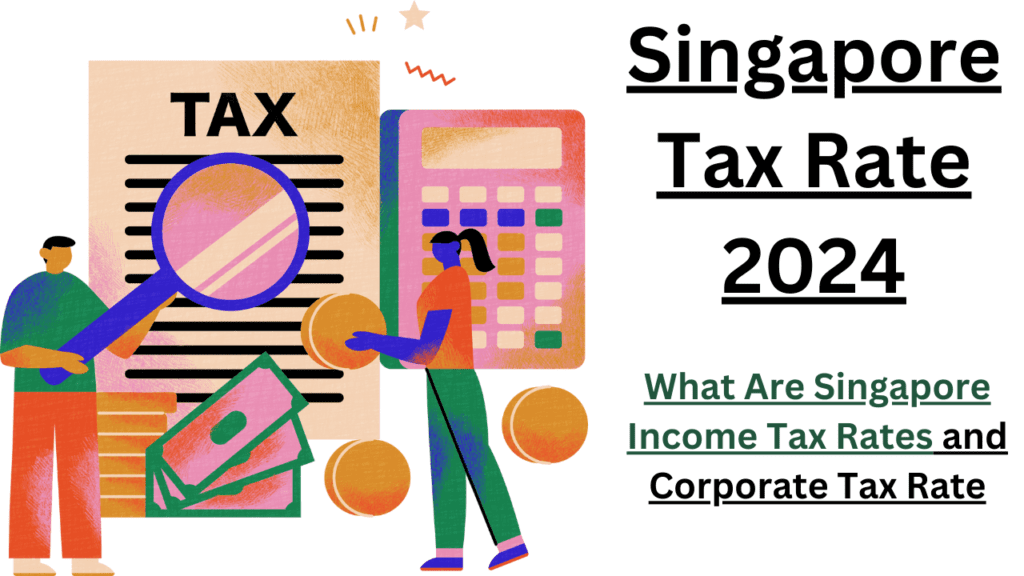Demystifying Singapore Tax Rates 2024 :
Greetings, dear readers! In this insightful piece, I aim to unravel the intricacies of Singapore’s tax landscape, focusing on the Singapore Tax Rates 2024. Let’s delve into the details of both Singapore Income Tax Rates and Corporate Tax Rates.
Singapore Tax Rates 2024 : An Overview
Singapore, known for its economic prowess and strategic financial policies, boasts different tax rates for citizens (Singaporeans) and foreigners. For citizens, the tax rates range from 0% to 22%, with the progressive scale ensuring lower taxes on income up to a specific threshold. On the other hand, non-citizens, or foreigners residing and working in Singapore, face a flat tax rate spanning from 15% to 22%, contingent upon their tax residency status.
Corporate Tax Rate (CTR): Navigating Business Taxes
Businesses operating in Singapore grapple with the Corporate Tax Rate (CTR), where company owners are obligated to pay taxes on their profits. This tax is computed based on the prevailing corporate tax rates, reflecting the fiscal responsibility of companies to contribute to the national revenue.
Singapore Income Tax Rates : Nuances and Benefits
Singapore extends tax benefits to its citizens, exemplified by exemptions on the interest earned from approved state banks. Singaporean citizens enjoy tax-free interest on their savings deposited in government-sanctioned banks. Conversely, foreign companies engaging in investments or loans in Singapore are subject to corporate tax on their earned interest income.
Singapore’s Tax Distinction : A Global Perspective
Renowned for having some of the world’s lowest Income Tax Rates (ITR), Singapore stands out as a jurisdiction where both individuals and businesses typically encounter lower tax burdens compared to many other countries.
Eligibility Criteria for Singapore Income Tax Rates
Understanding Singapore’s tax rules is crucial for determining tax obligations. Citizens, permanent residents, and individuals working in Singapore for more than six months in the preceding year are generally required to pay taxes. Tax residency is determined by factors such as income and duration of stay, ensuring a fair and transparent taxation system.
Filing Income Tax in Singapore : A Step-by-Step Guide
For those seeking guidance on filing income tax in Singapore, a step-by-step process is outlined:
- Visit the official IRAS website.
- Log in using SingPass or IUA credentials.
- Click on “File Income Tax Return.”
- Verify all required details in the form.
- Enter all sources of income, including rental income.
- Submit the form online.
By adhering to these steps, individuals can seamlessly navigate the process of filing income tax in Singapore. The deadline for submission is April 15th each year, requiring taxpayers to furnish details of their income, deductions, and exemptions.
Conclusion : A Holistic Understanding
In conclusion, this article provides a comprehensive understanding of Singapore’s Income Tax and Corporate Tax Rates for 2024. By demystifying the intricacies of Singapore’s tax system, readers gain insights into eligibility criteria, filing procedures, and the broader context of Singapore’s tax landscape.

